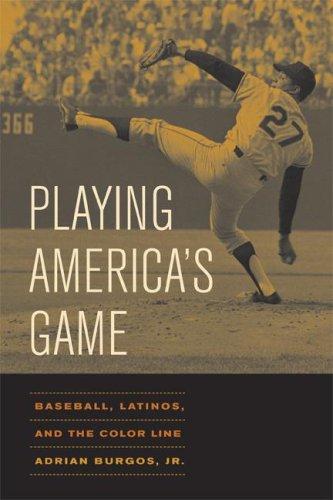Thoughts on reading Playing America's Game: Baseball, Latinos, and the Color Line by Adrian Burgos Jr.

Playing America’s Game surveys Latino participation in baseball and constructs a compelling argument that Latino participation in baseball serves as a proxy in the ever evolving social categorization of race in America. Through investigating where Latinos were allowed to play baseball in the United States, and for whom, Burgos dimensionalizes the evolution of racial understanding in America, while also elucidating the impacts that these racial categorizations have on the lives of those caught in between the color line. Burgos also delves into American colonialism in Latin America and the externalities of American capitalism in countries such as Cuba, the Dominican Republic, Puerto Rico, and Venezuela; displaying yet another perspective of racial subjugation by the American Empire. These histories serve as an important reminder to myself about the complex racialization of Latinos in the United States, as it is all too easy for myself to view an otherwise heterogenous group of people as a homogenous monolith based solely on a shared language.
As an avid baseballphile, this book introduced to me a world of latino ballpeople and their impact on the games (or, at the very least, my immaculate grid): Martin Dihigo, Juan Marcial, Alejandro Pompez, etc. The book also allowed me too explore in depth barnstroming exploits, the evolution of the Negro Leagues, organized amateur baseball in the United States, and organized ball throughout Latin America; giving me the ever sought after opportunity to understand at a more fundamental level the game I love.